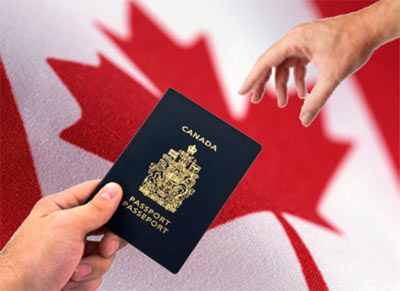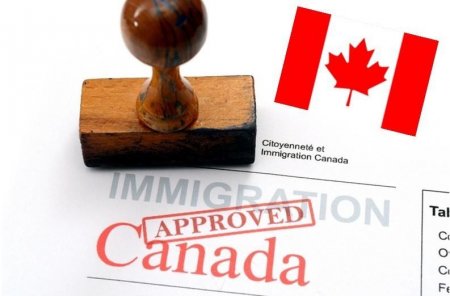L
lags2020
Guest

It's good to be a Nigerian and live in Nigeria. But do you have any reasons to travel to Canada and desire to know the visa application options open to you? There are several ways to secure a visa to Canada, and some of them will be discussed briefly here to give you an idea of the options open to you and how to utilize them for your own travel purposes.
i. Business visa
In order to secure a business visa to travel to Canada, your business value must fall under three broad categories to be considered or be granted a visa: those looking to invest; those wanting to launch a start-up (business) in Canada; and self-employed individuals.
In order to be granted a travel visa for investment purposes, you must have a minimum of 250,000 Canadian dollars for investment under the Federal Investor category (but this appears to be on hold by the CIC for now). For the Start-Up Visa, your business idea must have been supported by a designated angel investor organization or venture capital fund to qualify for this visa. For the Self-Employed Visa category, you must demonstrate that you have significant economic contribution to make to Canada in the areas of journalism, book writing and publishing, music, photography, sports, coaching, and others; you will also do well if you demonstrate the ability to purchase and manage a farmland in Canada.
ii. Family visa
It is possible to secure a visa to Canada if your spouse (legally married husband or wife) is already in Canada and sponsoring your trip. Your spouse must be a citizen or a Canadian permanent resident, and agree to an undertaking to provide financial support to you during your stay in the country.
Under this scheme, it is also possible to get a visa to Canada if your parents or grandparents are already in the country and sponsoring your trip (this was reintroduced in 2014 with only 5,000 applicants accepted). Your sponsors must agree to a 20 years undertaking, and show three years of Canadian tax documents to support their incomes.
iii. Temporary work permit
Under this category, you can secure a travel visa to Canada on a temporary work permit, but an employer in Canada must be the one to sponsor your trip to the country as a hired employee. When you are hired to work in Canada, your employer can provide the necessary documents to facilitate your travel to Canada.
It must however be pointed out that the employer must demonstrate that the position you are being hired for cannot be filled by a Canadian citizen or permanent resident on ground, but only by a foreign worker like you. He must also show that he has made extensive efforts to hire someone within the country for the specific job without any success before reaching out to you across borders. Once your LMO is approved, you have 6 months to come to Canada with your work permit.
iv. Federal Skilled Trades Category (FSTC) visa
If you are skilled in a particular labour, you can secure a visa to Canada to perform such skilled trades. The idea behind this is to attract more skilled labour to Canada to boost the economy and meet the needs of the local populace. You must be skilled in either English or French, have at least two years of paid work experience, possess employment requirements, and have an offer of employment from employers in Canada.
Under the Federal Skilled Trades Programme, 43 occupations are eligible to foreign workers willing to work in Canada: 17 of these occupations are under the Group A category, and 26 occupations under the Group B. Here they are:
Group A – Jobs with sub-caps of 100 applications each:
- Contractors and supervisors, electrical trades and telecommunications occupations
- Contractors and supervisors, carpentry trades
- Contractors and supervisors, other construction trades, installers, repairers and servicers
- Carpenters
- Contractors and supervisors, mechanic trades
- Contractors and supervisors, heavy equipment operator crews
- Supervisors, logging and forestry
- Supervisors, mining and quarrying
- Contractors and supervisors, oil and gas drilling services
- Logging machinery operators
- Agricultural service contractors, farm supervisors and specialised livestock workers
- Supervisors, mineral and metal processing
- Supervisors, petroleum, gas and chemical processing and utilities
- Supervisors, plastic and rubber products manufacturing
- Central control and process operators, mineral and metal processing
- Power engineers and power systems operators
- Water and waste treatment plant operators
- Machinists and machining and tooling inspectors
- Sheet metal workers
- Structural metal and plate work fabricators and fitters
- Ironworkers
- Welders and related machine operators
- Electricians (except industrial and power system)
- Industrial electricians
- Power system electricians
- Electrical power line and cable workers
- Telecommunications line and cable workers
- Telecommunications installation and repair workers
- Plumbers
- Steamfitters, pipefitters and sprinkler system installers
- Gas fitters
- Construction millwrights and industrial mechanics
- Heavy-duty equipment mechanics
- Refrigeration and air conditioning mechanics
- Railway carmen/women
- Aircraft mechanics and aircraft inspectors
- Elevator constructors and mechanics
- Crane operators
- Drillers and blasters - surface, mining, quarrying and construction
- Water well drillers
- Underground production and development miners
- Oil and gas well drillers, servicers, testers and related workers
- Petroleum, gas and chemical process operators
Under the Provincial Nominee Programme, you can secure a work or travel visa that provides you with a permanent residency to work in a particular province or territory in response to the demands of the province or territory. These can be corporate jobs or semi-skilled jobs, and it may also include investments, entrepreneurship, or graduate job programmes.
Once a province or territory issues a certificate of nomination (valid for 6 months) to you as an applicant, you can then submit your application for permanent residency as a provincial nominee.
Apart from the above listed visa options, there are other avenues like the Canadian Experience Class, the Federal Skilled Worker Category, student visas, tourism visas, and other related categories that you can take advantage of as a Nigerian or African.
Image credit: freeimages.com
Attachments
-
 upload_2015-5-1_10-50-57.jpeg28.8 KB · Views: 192
upload_2015-5-1_10-50-57.jpeg28.8 KB · Views: 192 -
 upload_2015-5-1_10-52-11.jpeg23.8 KB · Views: 238
upload_2015-5-1_10-52-11.jpeg23.8 KB · Views: 238 -
 upload_2015-5-1_10-52-45.jpeg24.1 KB · Views: 91
upload_2015-5-1_10-52-45.jpeg24.1 KB · Views: 91 -
 upload_2015-5-1_10-53-44.jpeg43.4 KB · Views: 158
upload_2015-5-1_10-53-44.jpeg43.4 KB · Views: 158 -
 upload_2015-5-1_10-54-6.jpeg27.6 KB · Views: 152
upload_2015-5-1_10-54-6.jpeg27.6 KB · Views: 152 -
 upload_2015-5-1_10-54-41.png351.5 KB · Views: 130
upload_2015-5-1_10-54-41.png351.5 KB · Views: 130
Last edited:

